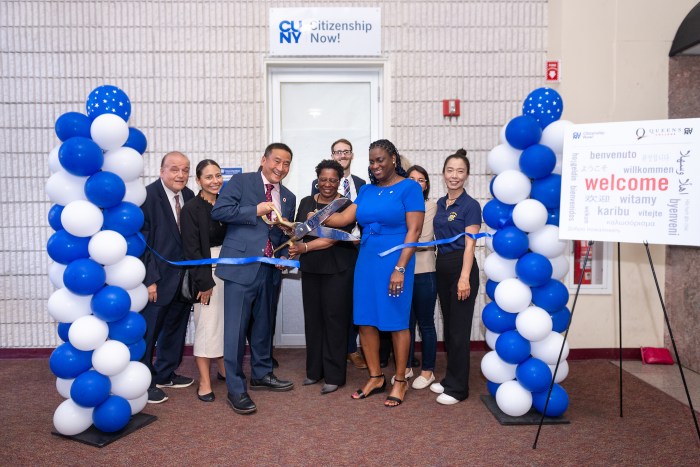
What will Donald Trump do to keep America safe?
On Wednesday, the president-elect was asked whether this week’s truck attack on a Christmas market in Berlin caused him to reevaluate his proposed ban on Muslims coming into the country.
Trump said, “You’ve known my plans all along and it’s, they’ve proven to be right, 100 percent correct.”
But we don’t know Trump’s plans.
His ideas are both vague and malleable (like the Muslim ban, which he has walked back). That’s one reason why the daily circus at Trump Tower has drawn such attention, as observers try to guess Trump’s direction based on the people who show up to give him advice.
Last week, New York Rep. Peter King (R-Seaford) paid a visit to Trump. The former chairman of the House Committee on Homeland Security said he urged the president-elect to be more aggressive in counterterrorism policy: “leaning forward when it comes to investigating Islamic terrorism.” To get a better sense of what Trump is hearing, amExpress asked King to explain his advice.
Wartime thinking
King said he had not pitched the kind of “Muslim registry” system that some worry Trump would enact — given the president-elect’s previous comments and the existence of the National Security Entry-Exit Registration System, an effort to track noncitizens from largely Muslim countries that was suspended in 2011 but not fully dismantled.
Instead, King focused on beefing up law enforcement by expanding open-ended federal investigations and modeling a defunct NYPD program that has been called unhelpful both inside and outside the department.
That program, initially the domain of the so-called Demographics Unit, was tasked with mapping Muslim neighborhoods in New York City. The unit’s members and its associates infiltrated mosques and student organizations, and compiled information on Middle Eastern restaurants and gathering spots around the city — engaging in acts of surveillance based on religion.
The hostility to this program among Muslims and civil liberties advocates is well documented. But did the program help stop terror attacks? The NYPD’s intelligence chief testified in 2012 that the unit had generated no leads for terror investigations.
This isn’t particularly surprising, given the wide net the program cast. Yet King and others want to return to that style of surveillance once again.
King says FBI local offices could “map” Muslim communities via informers and sources. If they couldn’t or wouldn’t, then he says local police departments should take the lead.
The suggestion walks a fine line between legitimate police work and unconstitutional surveillance. Sourcing and outreach in Muslim communities seems well-intentioned and helpful; mosque-crawling does not.
Trump would have limited influence over local police department priorities, though his attorney general would control the FBI’s direction.
On that front, King suggested the FBI conduct open-ended counterterror investigations, unless there is “absolutely no doubt” that a subject does not present a terror threat.
King said that “since we are at war,” investigations should be kept open “pretty much as long as they believe there’s even a chance that something could come out of it.” He cited the Boston bombing in 2013 and the Orlando nightclub shooting this year as examples where there had been earlier FBI investigations that were closed before the attacks.
Here’s the thing. . .
There are a number of problems with this analysis.
First, FBI investigations are already essentially open-ended. There are three types of investigations requiring various amounts of evidence. All of them can be extended with limited cause.
Full investigations, the most serious, already have no time limits. It’s not hard to open an investigation either: According to department guidelines, a single blog post could be grounds for opening the intermediate level investigation; that inquiry would be limited to six months, but could be extended in six month increments. Initial “assessment” investigations have an even lower threshold.
In the counter-terrorism community, the problem is that there is actually too much information: It is “crippling,” says Michael German, a former FBI agent and current fellow at the Brennan Center.
“Most FBI agents get out of bed suspicious,” says German. There are plenty of cases for them to track, but too many end up being false alarms when we ratchet up the security state urgency — such as the many other inquiries in play in the Boston joint task force while they were looking into the future Boston bomber, according to German.
It’s impossible to perfectly predict the future, but when the FBI fails, German says it “blames its tools.” The ratcheting up of intensity does not always alleviate the problem, which German says is adequately wading through the “‘See Something Say Something’ nonsense.”
Trump’s attorney general can set new guidelines for FBI investigations. Should they really be more expansive than their current considerable level? King said there’s a war on and more surveillance is necessary. But when does the war end?

















